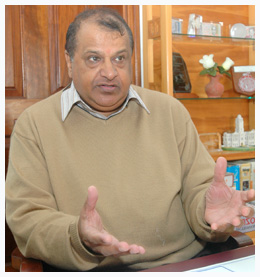Publicité
New measures in schools
Par
Partager cet article
New measures in schools

Major reforms have been announced by the Ministry of Education in both primary and secondary sectors. Various projects are to be implemented with a view to tackling the problem of the 30% failure rate in the CPE exams
 Firstly, in the primary sector, there will be a change to three cycles []]I-II, III-IV and VVI] to ensure corrective action is taken immediately if basic skills have not been acquired. New textbooks will be available this year for standard V and next year for standard VI. Books have been split into two volumes, so are lighter for pupils to carry.
Firstly, in the primary sector, there will be a change to three cycles []]I-II, III-IV and VVI] to ensure corrective action is taken immediately if basic skills have not been acquired. New textbooks will be available this year for standard V and next year for standard VI. Books have been split into two volumes, so are lighter for pupils to carry.
Various methods are to be introduced in order to make teachers more aware of their pupils’ needs, enable them to identify basic weaknesses and address them. The dossier scolaire will be initiated in Standard I and Form I and will accompany the child throughout his/her schooling. Profi ling and diagnostic assessments in Standards I, II and III are meant to identify basic problems. Continuous assessment will be used to determine what each individual child has learnt and what is still left to learn. However, it will not count in the end of year marks until it is anchored and embedded in the system.
The already well publicized Enhancement Programme for standard IV came into force yesterday and takes place on Mondays, Wednesdays and Fridays as a replacement for private tuition. Its aim is to provide equal learning opportunities for all, making use of alternative pedagogies that will suit pupils with varied levels of ability. Trained resource persons will help with extra-curricular activities. Materials and audio-visual support will be supplied by the MIE and the MCA.
Parallel to this, the ZIIS project is being implemented in some ZEP schools on a pilot basis. It involves the Trust Fund for the Integration of Vulnerable Groups as well as the Culture Division of the Ministry and aims to develop artistic and creative qualities in pupils, introduce activity-based learning and promote a sense of belonging in schools.
Other innovative measures are sports, obligatory reading periods of 30 minutes a week and the reintroduction of dictation. The Government Programme 2005 – 2010 spells out the need to reform the curriculum at pre-primary, primary and secondary levels in the light of developments worldwide, and according to national needs of the Mauritian students.
Concerning secondary schools, the National Curriculum Framework was launched last month and is already being partially implemented.
For example the curriculum base is being broadened by making natural and social sciences compulsory and introducing new subjects like travel and tourism, P.E., marine science and environmental management. Pedagogy is reinforced by the use of ICT and multimedia.
In line with the policy of compulsory education for all up to age of 16, a national exam in Form III is to be used as a means of directing pupils towards technical, vocational or academic streams.
The Ministry has produced a manual for heads of secondary schools to help them in the effective discharge of their management duties.
By Vasant Bunwaree,
Minister of Education, Culture and Human Resources
(Extract from ‘Educational reform : Are we getting it right?’)
L’express Weekly – Friday 19 February
Publicité
Publicité
Les plus récents






